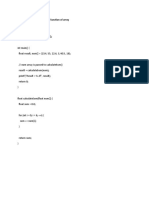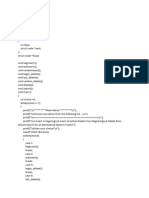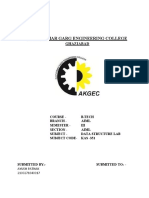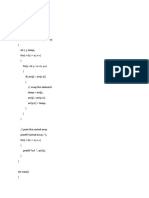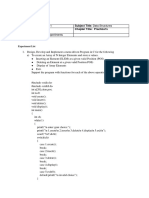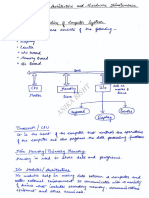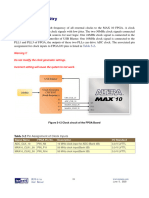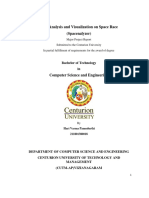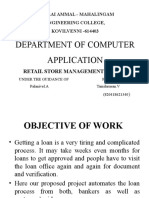0% found this document useful (0 votes)
18 views8 pagesDLPROGRAMS
The document contains multiple C programming examples, including a menu-driven program for string length and concatenation, a binary search implementation, a selection sort algorithm, and a queue demonstration using linked lists. Each section outlines the aim, algorithm, and provides the corresponding C code. The programs are designed to perform basic operations on strings, arrays, and linked lists.
Uploaded by
thegamer3167Copyright
© © All Rights Reserved
We take content rights seriously. If you suspect this is your content, claim it here.
Available Formats
Download as DOCX, PDF, TXT or read online on Scribd
0% found this document useful (0 votes)
18 views8 pagesDLPROGRAMS
The document contains multiple C programming examples, including a menu-driven program for string length and concatenation, a binary search implementation, a selection sort algorithm, and a queue demonstration using linked lists. Each section outlines the aim, algorithm, and provides the corresponding C code. The programs are designed to perform basic operations on strings, arrays, and linked lists.
Uploaded by
thegamer3167Copyright
© © All Rights Reserved
We take content rights seriously. If you suspect this is your content, claim it here.
Available Formats
Download as DOCX, PDF, TXT or read online on Scribd
/ 8






